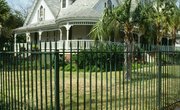The cost of a new roof is an expense investment that most property owners hope they can get some relief from at tax time. However, the IRS does not allow full deductions for this type of expense when it is incurred. In fact, depending on how the property is classified, the cost of a new roof may not be deductible as an expense at all.
Personal Residence
The cost of a roof installed on an owner’s personal residence is not deductible as an expense in the year the expense incurs, but rather added on to the initial cost of the property and accounted for when the home is disposed of or sold. This addition increases the owner’s cost basis in the home. Cost basis is recovered at the time of sale by offsetting it with the sales price of the home. When cost basis is increased during ownership, any potential gain at the time of sale is minimized.
Cost Basis
An owner’s cost basis in personal property includes the purchase price of the home, plus additions for other costs incurred to acquire the property, and throughout the ownership of the home. Examples of additions to cost basis outside of the purchase price include title fees, transfer taxes, city or town assessments for utility lines or sidewalks and long-term improvements or repairs made to the home. The costs of minor repairs, such as painting or carpet replacement, are not generally included in cost basis calculations.
Rental or Investment Property
For owners of residential or commercial rental property held for investment, the tax laws for deducting new roofs are different. The IRS requires that the value of property held for investment purposes be depreciated over a period of time. In addition to depreciating the basic cost basis value of the property, this law extends to long-term capital improvements made to the property, including new roofs. A deduction for depreciation is taken as an expense beginning in the first year the cost is incurred.
Depreciation
Unlike personal residences, the cost of new roofs installed on investment property is not added to the cost basis of the property, except when the new roof is added before the property is placed in service. If the new roof is installed after the investment property has already been in service, the new roof will be listed as a separate asset in connection with the property. In this instance, the basic depreciation schedule for the new roof will match the same basic recovery period for the property, depending on the classification of the unit. If the property is a residential rental property, the recovery period is 27.5 years, and if the property is held for commercial rental purposes, the recovery period is 40 years. Unless an alternative depreciation method is used, the cost of the new roof will be divided equally into the number of years in the recovery period, and the result will be deducted as a depreciation expense each year until the roof is fully depreciated, or until the property is sold or disposed of.
References
Writer Bio
With a background in taxation and financial consulting, Alia Nikolakopulos has over a decade of experience resolving tax and finance issues. She is an IRS Enrolled Agent and has been a writer for these topics since 2010. Nikolakopulos is pursuing Bachelor of Science in accounting at the Metropolitan State University of Denver.

